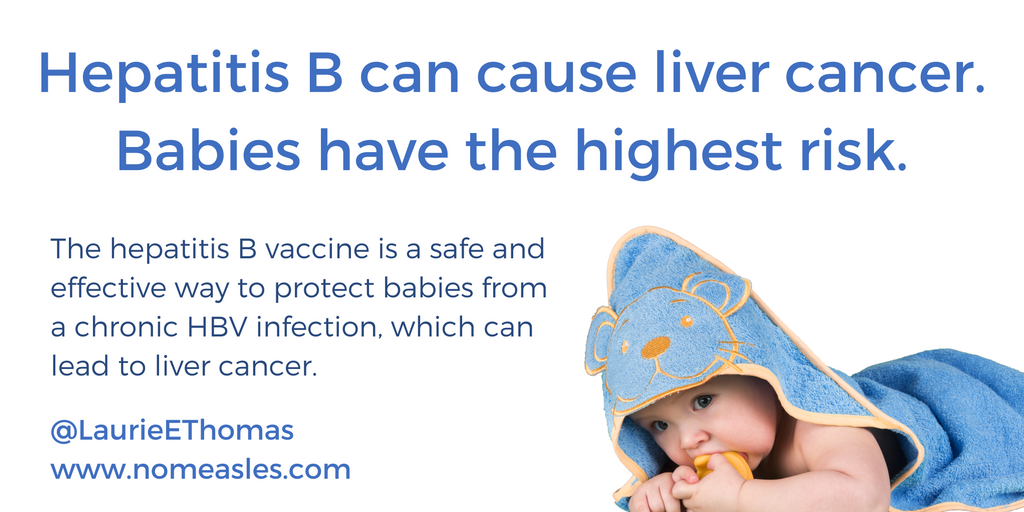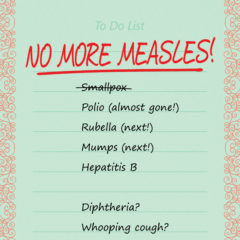Hepatitis B causes liver cancer!
The hepatitis B vaccine was the first vaccine to be useful in preventing cancer. It is given to newborns to keep them from getting a chronic infection with the hepatitis B virus (HBV), which can lead to liver cancer. It is particularly important to vaccinate infants against hepatitis B. They are the people who are most likely to get a persistent HBV infection.

The word hepatitis means inflammation of the liver. Several unrelated viruses can cause hepatitis. By the mid 20th century, it was obvious that one kind of viral hepatitis could be spread by unclean water or contaminated food or casual person-to-person contact. It was called infectious hepatitis. It is now called hepatitis A, and it is due to the hepatitis A virus HAV. Hepatitis A causes a serious but short-term infection. Another kind of viral hepatitis is much harder to catch. It was spread by blood-to-blood contact, such as by blood transfusions or through the reuse of hypodermic needles, tattoo needles, or acupuncture needles. It was called serum hepatitis. Today, we call it hepatitis B.
Many people with chronic hepatitis B infection have no idea that they are infected. In this lecture, Dr. Stephanie Chao tells of a young doctor who had probably caught hepatitis B in childhood. He died of liver cancer at age 30. She stresses that 90% of the people who catch hepatitis B in infancy remain chronically infected for life. That’s why it’s so important to vaccinate newborns against hepatitis B:
Fortunately, we now have a highly effective and remarkably safe vaccine for preventing hepatitis B infection. To make this vaccine, scientists found the gene for a protein found on the surface of the hepatitis B virus. They put this gene into a common baker’s yeast. These transgenic yeast then make large amounts of the viral protein, which is refined and made into a vaccine. Since this recombinant vaccine has never had any contact with actual hepatitis B viruses, there is no chance whatsoever that a person could catch hepatitis B from the vaccine.
Many people think that hepatitis B is only a sexually transmitted infection. Although hepatitis B can be spread through sexual contact, it can be spread in other ways as well. A newborn baby can catch hepatitis B from his or her mother, either during birth or through breastfeeding. Hepatitis B can also be spread by other close contact between people, such as by people sharing a razor. It can also be spread in a preschool if an infected toddler bites another child. It is particularly important to prevent babies from being infected by hepatitis B. Babies and young children are the people who are most likely to go on to have a chronic hepatitis B infection. These chronic carriers of hepatitis B can spread the disease to other people, and they are at high risk of liver cancer. That’s why it is so important to vaccinate babies against hepatitis B.
Hepatitis B kills. It kills a few people right away, by causing a severe case of liver inflammation. It kills other people slowly, by damaging the liver or causing liver cancer. The hepatitis B vaccine will play an essential role in eradicating hepatitis B. In 1984, Taiwan started vaccinating infants against hepatitis B. Since then, the number of children with chronic hepatitis B virus infection has dropped by 85%, from roughly 15% of children to less than 1% of children. At the same time, the number of cases of liver cancer in children also decreased.

